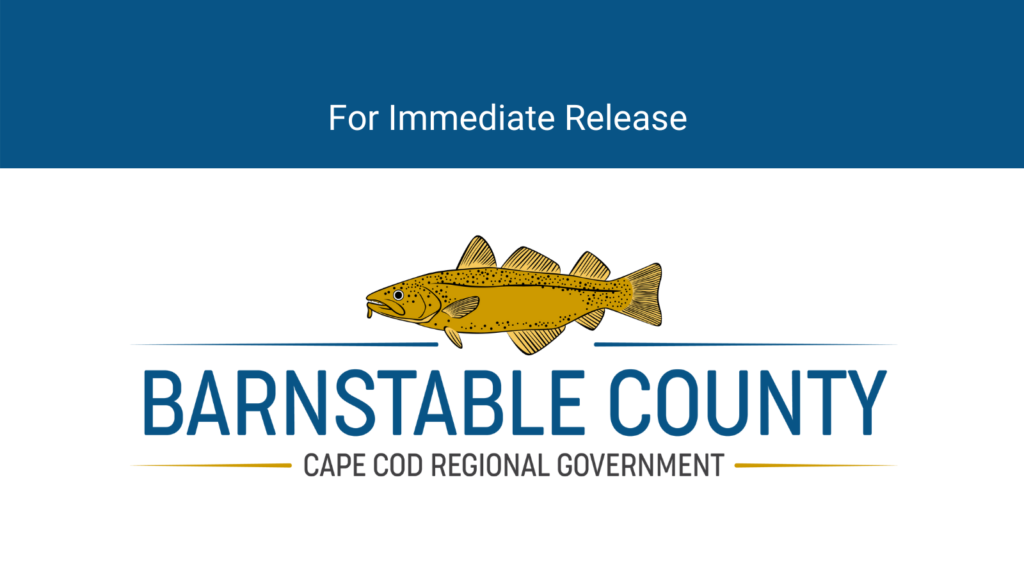
Barnstable County Commissioners Support Improvements to County Water Quality Laboratory

April 10, 2024 (BARNSTABLE, MA) — At the Barnstable County Board of Regional Commissioners’ meeting today, a new business plan and fees schedule for the Water Quality Laboratory were announced, targeting service enhancement through cutting-edge technology.
Key Updates on Laboratory Business Plan and Fee Structure
Sean O’Brien, Director of the Department of Health and Environment, alongside Laboratory Director Dan White, unveiled a forward-looking plan for the Barnstable County Water Quality Laboratory. Central to this vision is the implementation of a cutting-edge Laboratory Information Management System (LIMS) and the introduction of an online customer portal, initiatives poised to significantly elevate customer service and operational efficiency. This move not only aims to modernize the laboratory’s data management and service delivery but also strengthens its mission to be the regional beacon for water quality analysis.
The strategy focuses on enhancing testing for emerging contaminants, boosting online engagement for revenue, and revising the business structure for financial stability, while ensuring fair pricing and superior analytical services.
Sean O’Brien, Health and Environment Director, emphasizes: “Our goal is to be the reliable authority for water quality analysis in our community. With the new, state-of-the-art equipment, we will be equipped to tackle emerging contaminants like PFAS, along with other crucial tests such as nitrogen levels. These investments will help us deliver accurate and timely results for our region, with an added benefit of enhanced accessibility and convenience through a new online customer portal, available in 2025.”
The presentation highlighted the laboratory’s recent pricing strategy overhaul to align with competitive lab fees and ensure cost coverage, with the last adjustment noted in FY 2021. The proposed fees were established through a comprehensive analysis, considering both competitive providers’ costs and internal expenses for past tests, to align with the laboratory’s objectives. Subsequently, the Board unanimously supported the proposed rate changes in laboratory fees. The measure will now go the Assembly of Delegates for their approval.
Advocacy for Sea Grant Funding and Paint Recycling Legislation
The Commissioners agreed to execute a letter supporting the retention of Sea Grant Program Funding at $163.7 million in the FY 2025 Commerce-Justice-Science appropriations bill, comprising $145.7 million for the National Sea Grant College Program and $18 million for Sea Grant Aquaculture Research. This is in response to a new appropriations proposal that entails a reduction in funding for aquaculture programs across the nation, posing a significant impact on essential projects crucial to our region. Director Maguire stressed the program’s importance and advocated for upholding the original funding to sustain our region’s initiatives.
Furthermore, the Commissioners supported legislation promoting paint recycling by endorsing House Bill H.823 and Senate Bill S.551. This legislation seeks to establish a paint stewardship law in Massachusetts, aligning with the Paint Stewardship Program operational in multiple states. This program brings together manufacturers, retailers, consumers, and government entities to encourage the recycling and safe disposal of unused paint. By implementing a modest fee of $0.75 to $0.95 per gallon at purchase, the program facilitates easy drop-off of leftover paint at designated locations, offering substantial environmental and financial advantages, including reduced hazardous waste mismanagement and municipal cost savings.
“Implementing the Paint Stewardship Program fee is a cornerstone for managing recycling operations and bolstering educational campaigns, significantly driving down waste,” explains Mike Maguire, Director of Cape Cod Cooperative Extension. “With paint constituting approximately 40-60% of hazardous waste received by Household Hazardous Wastes (HHWs), the adoption of paint stewardship legislation could alleviate financial burdens on municipalities, potentially saving Cape Cod towns hundreds of thousands of dollars each year.”
Assembly of Delegates Finance Committee Report
The Commissioners discussed a report from the Assembly of Delegates Standing Committee on Finance on the Fiscal Year 2025 Proposed Budget. The report, required by the Barnstable County Home Rule Charter and Manual of Governance, highlighted recommendations from the Finance Committee on the proposed FY 25 budget appropriations, citing reasons for any recommendation that differ from the budget proposed by the Board. While the two bodies are in mostly in agreement, the Board does not agree with the Finance Committee’s recommendation to fund another full- time staff person for the Assembly.
In related news, the Commissioners voted to authorize the County Administrator and Finance Director to work with the Assembly of Delegates to make recommendations for establishing a fund for water quality and wastewater initiatives.
ABOUT BARNSTABLE COUNTY REGIONAL GOVERNMENT OF CAPE COD Barnstable County provides exemplary government functions and services to keep our community healthy and safe, promote sustainable growth, and offer a proactive, open government that enhances the quality of life for the citizens of Barnstable County. Learn more at www.capecod.gov.
MEDIA CONTACT Sonja Sheasley, Communications Coordinator | (508) 375-6896 | sonja.sheasley@capecod.gov
###



